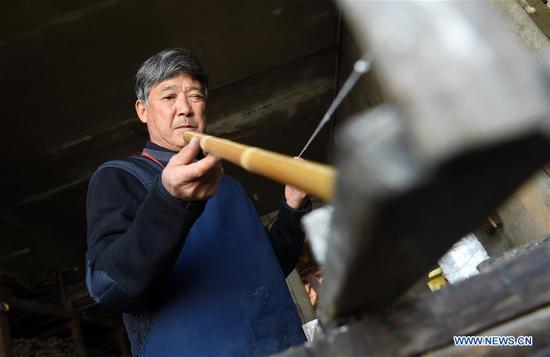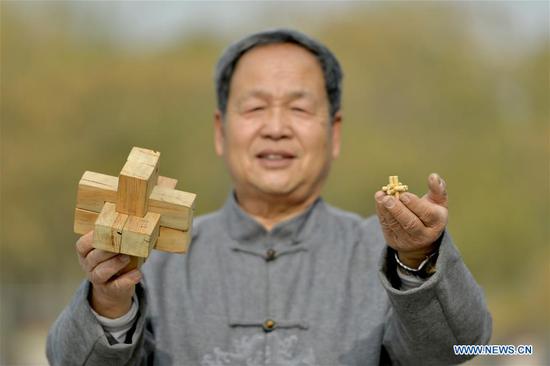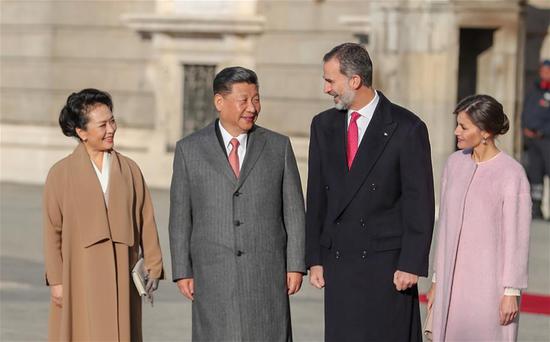
(Photo by Shi Yu/China Daily)
Amendments to the laws related to criminal affairs have gradually reduced the number of offenses punishable by death.
Editor's note: This is the second in a series of stories reflecting China's achievements in fields such as science, law enforcement, education and transportation resulting from 40 years of the reform and opening-up policy. More stories will follow in the coming weeks.
In the 40 years since China adopted the reform and opening-up policy, the country has moved to gradually limit the use of the death penalty, a punishment that was once seen as a cornerstone in the fight to deter offenders and maintain public order.
Experts say the move away from capital punishment is partly a result of the nation's growing economic strength, but is also motivated by a desire to prevent irreversible miscarriages of justice.
Zhou Guangquan, a professor of criminal law at Tsinghua University in Beijing, often uses the case of Nie Shubin as an example.
In 1995, Nie was executed at the age of 21 after being convicted of raping and killing a woman in Hebei province. In 2016, however, the Supreme People's Court, China's top court, quashed Nie's conviction and pronounced him not guilty posthumously after ruling that the evidence presented at his trial had been obtained illegally and could not guarantee a flawless conviction.
Moreover, in 2013, during a trial at Handan Intermediate People's Court in Hebei, a man named Wang Shujin confessed to the crimes that led to Nie's execution.
Cases such as Nie's demonstrate that the death penalty must be used in a prudent and controlled fashion, according to Zhou, who was pleased to see greater restrictions on its use written into a report issued at the Third Plenary Session of the 18th Central Committee of the Communist Party of China in 2013.
"It was a signal that capital punishment would be used less frequently in China," he said, adding that the loss of a young life and the anguish suffered by Nie's family "was too devastating to be erased by simply overturning the conviction".
Mo Hongxian, a professor of law at Wuhan University, Hubei province, who has focused on the use of the death penalty since 1997, said the report was probably the first time the prudent application of capital punishment had been mentioned in a national-level document.
"It can be regarded as a display of firm support for the drive to limit the use of the death penalty in the past two decades," she said.
A key move in 2007 saw the Supreme People's Court being given the power of final arbitration over the use of capital punishment, meaning it has to approve all death sentences passed by lower-level courts. Meanwhile, "innocent until proven guilty" and "punishment stipulated by law" were enshrined as basic principles in the Criminal Law.
In 2011, the death penalty was abolished for dozens of nonviolent crimes, such as fraud of financial documents and theft.
"These measures illustrate the country's determination to protect human rights" said Mo, who was born in 1954 and has witnessed all 40 years of reform and opening-up.
She added that the changes were a direct result of China's rapid economic development, stronger management of public security and the public's growing legal awareness, and noted that the abolition of the death penalty for a growing number of crimes is in line with global trends.
Although the number of people sentenced to death every year is never disclosed, both Mo and Zhou are optimistic about further reductions in the use of capital punishment for a wide range of nonviolent crimes.


















































